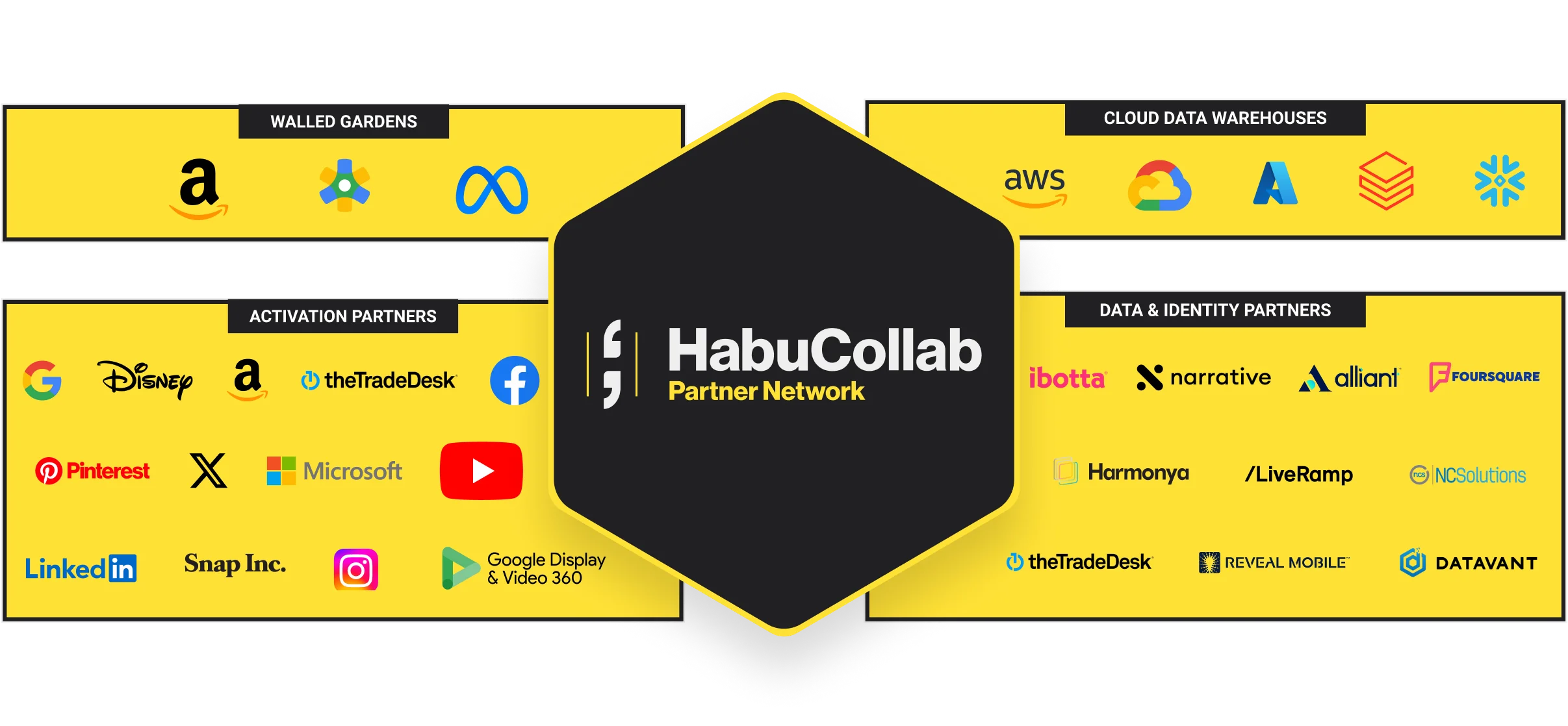Habu has been acquired by LiveRamp
Maximize Data Value. Minimize Business Risk.

Overview
Safeguard Your Data
Data clean rooms have emerged as the go-to technology solution for privacy-preserving collaboration with distributed data. By enabling companies to optimize supply chains, identify fraud/reduce risk, and tailor marketing strategies to improve the customer experience, they deliver real business value.
As a compelling collaboration solution, companies should thoroughly understand how data clean rooms work—including how valuable first-party data is shared, used, tracked, stored, and retained. While legal and compliance teams are generally not day-to-day data clean room users, understanding what they mean for your business is vital.

Frequently Asked Questions
Privacy, Security, Governance, and More
Who is Habu?
Habu does not restrict the type of data you can use or share, as long as it is lawful. You should work with your partners to evaluate and confirm what data they wish to make accessible, under what conditions, for what purpose, and that their data practices are legal.
If collaboration partners agree to trust a specific cloud platform to process data, they can use Habu’s native clean room pattern to orchestrate collaboration on that platform. Habu has no access to raw data – only to metadata that users configure within the Habu UI, including data connection schemas, user access roles and controls, question details, and clean room configurations.
If collaboration partners cannot agree on a single partner’s infrastructure for data processing, Habu can create a temporary compute environment to execute the analytics using a hybrid clean room pattern. Habu software connects directly to data at its source, and deletes the compute environment once results are delivered back to the clean room.
For advanced use cases where the highest degree of security is required, Habu provides a confidential compute pattern that can keep client and partner data encrypted end-to-end, including during the question execution process. Habu uses attestation to verify hardware and software integrity in the trusted execution environment, and encrypts data using private keys that are only revealed to the hardware after it proves that it supports confidential computing.
For native cloud patterns, customer data assets remain on client infrastructure. For a hybrid pattern clean room, Habu only conducts processing during question execution in the same region where the customer’s cloud infrastructure resides. Results are written to a table on Habu’s chosen cloud partner infrastructure and retained according to the clean room expiration date or time-to-live configuration (if set). Customers can set a retention policy within their cloud environment on the results table. Habu cannot delete data after results are written to customer infrastructure.
Your partners have no access to your raw data in any provisioned clean room, regardless of the architectural pattern used. Additionally, you can choose which subsets of data to reveal to a given partner by restricting columns or data criteria as desired. Your partners then only see the information associated with the view you’ve permitted them to see in the clean room.
When configuring questions, the question creator can decide whether SQL code is visible to partners in a clean room. If you elect to hide SQL code, your partners will not be able to see the code itself, but rather will see your description of what the question achieves. For CleanCompute or CleanML machine learning models where code is containerized, your partners cannot view the model architecture, model weights, or any accompanying data preparation code.
If any party no longer wishes to participate in a clean room, they can easily remove their dataset from a specific use case or from the clean room entirely. The clean room owner can also disable the ability to create new analytic runs, or delete the clean room environment.
It depends on your risk posture and the settings you choose. Habu is designed to protect privacy while offering governance flexibility. For example, you can set data governance filters on all question runs according to your interpretation of applicable legislation. Your ultimate legal compliance will depend on your use case and will be determined by your DPO or legal counsel.
You can feel confident using Habu in light of GDPR requirements. Habu acts as a processor in all standard use cases and is governed by the terms and conditions laid out in its Data Processing Agreements (DPAs). All collected data is governed by the Habu privacy policy.
Yes. Habu is SOC 2 certified with industry best practices for information security according to an independent third-party auditor certification. A copy of the SOC 2 report is available upon request.